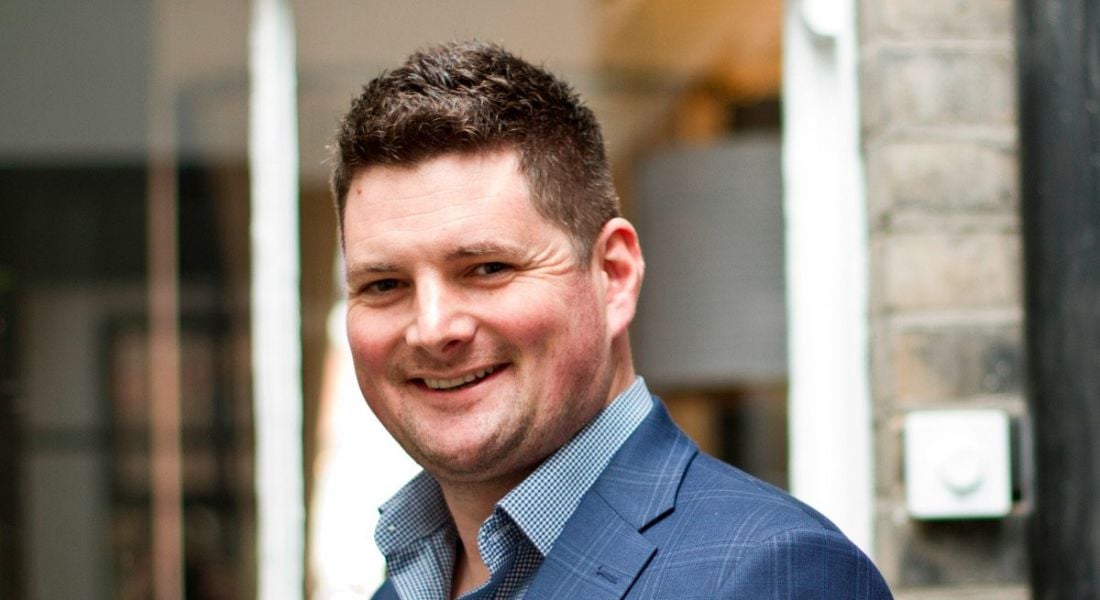PwC’s James Mountjoy discusses his lifelong interest in engineering, why engineers often move into management roles and the importance of bringing your own solution to a problem.
James Mountjoy’s interest in engineering began at an early age, stemming from his curiosity and interest in gadgets, puzzles and problem-solving.
“When I was young, I was so impressed by people who could explain how complicated things worked,” he says. “As a bit of a computer addict in my youth, it baffled me what a black box of metal, plastic and glass could do.
“As an adult who understands more about how things like smartphones work, the finished product still seems like a form of magic to me sometimes!”
Mountjoy says that this early interest in engineering was nurtured by some particularly passionate maths and science teachers he had in school, who fueled his interest by applying some of the concepts they were teaching to real-world examples.
“The impact some of those great teachers have had on me and other students is probably far more profound than they realise.”
After finishing school, Mountjoy went to University College Dublin, where he obtained a bachelor of engineering degree and a PhD in electronic engineering. He then found himself in a teaching and researching position at the university, where he focused his research in the areas of digital processing and digital devices.
Today, Mountjoy is a senior manager in PwC Ireland’s R&D incentives team, where he works with engineering teams to help prepare and support R&D tax credit claims, as well as a variety of grant applications.
‘Always bring your own solution to somebody when telling them about a problem’
What brought you to your current job?
My roommate at a tag rugby competition in London was chatting to me about how PwC is looking for engineers like me to work with clients to discuss their R&D activities. I later got introduced to a couple of members of the team in PwC over a coffee and instantly had a good feeling about the type of work they did and the team I would be working with. There were a variety of engineers on the team and the clients they worked with seemed to be doing such interesting things. Throughout my seven years in PwC, my role has evolved a lot from being a consultant on a small team to now being a senior manager on a team of about 24 people.
What were the biggest surprises or challenges you encountered on your career path in engineering and how did you deal with them?
University was not what I expected and was very formative for me in managing my time and striking a balance between study and life. Undergraduate life was interesting as an engineering student. There were so many challenging parts along the way, but the interesting people and funny antics that engineers get up to would always get you through the tough times.
A PhD in anything is a challenge to your resilience and critical thinking. Above all else, it instils the discipline of objective research. Doing research in the mature fields of engineering and making contributions to the practical world seemed very daunting at the outset. I had a very encouraging (and patient) PhD supervisor who gave me pointers along the way.
When I moved to PwC, I had that same sense of anxiety that I would be put on the spot in a meeting and crumble. What I found was a supportive and collaborative work environment where that just couldn’t happen.
On reflection, I think most people in high-performing positions (in industry and academia) feel some sense of imposter syndrome. That this work is for super smart people, not people like me. However, most of us have only gotten where we are with a lot of support and help along the way.
Was there any one person who was particularly influential as your career developed?
Since joining PwC, my role has evolved so much and my career has gone on a journey. From the early days, Stephen Merriman (tax partner in PwC) took a chance on hiring me. Over the years, he has helped me adjust from the academic mindset into the business world, while still having the freedom to apply my engineering skills to my day-to-day work.
PwC is an environment where there are constant challenges and stretch opportunities. I have been very lucky to learn from some super people who took the time to challenge my thinking.
‘The best engineers I know are curious and inquisitive’
What do you enjoy most about your job?
I really enjoy talking to engineers who are at the cutting edge of R&D in Ireland. There is so much more core engineering work going on in the country than I could have imagined when I was in university. Some of our client engineers have incredibly interesting projects that are really pushing the frontiers of the technology.
The team I work with is probably the part of the job I enjoy the most. There is a nice collaborative and innovative energy on the team. We are constantly challenging how we do things to improve ways of building up information to support incentive claims for clients.
What aspects of your personality do you feel make you suited to engineering?
I think creativity is something that people rarely think of when they think of traditional engineering but is so important. The best engineers I know are curious and inquisitive.
I always enjoyed trying to find patterns in things, figuring out problems and understanding how things work.
What can people expect from career progression in the engineering industry?
It is something I know you hear a lot but engineers often end up quickly moving into management roles. Being solution-oriented and having strong analytical skills tend to make engineers move through the ranks quickly. PwC has been a great place to experience that transition and understand some of the commercial aspects of the job. There are a lot of supports along the way, both formal and informal, to augment some of the skills.
I can even see it with the client companies we work with and how engineers evolve quickly into managerial roles.
What advice would you give to those considering a career in engineering, or just starting out in one?
Ireland is an exciting place for engineering careers at the moment. You will see regular announcements of technology companies investing into Ireland as well as smaller indigenous companies growing. The incentives available for companies doing R&D work enable Ireland’s labour market to be competitive internationally so there are lots of interesting opportunities for new engineering graduates in Ireland.
My advice to somebody starting out in an engineering career is to always bring your own solution to somebody when telling them about a problem. I have always valued working with people who keep an open mind and listen to ideas. I am also a big believer in never being afraid to admit when I don’t understand something!
Find out how emerging tech trends are transforming tomorrow with our new podcast, Future Human: The Series. Listen now on Spotify, on Apple or wherever you get your podcasts.




